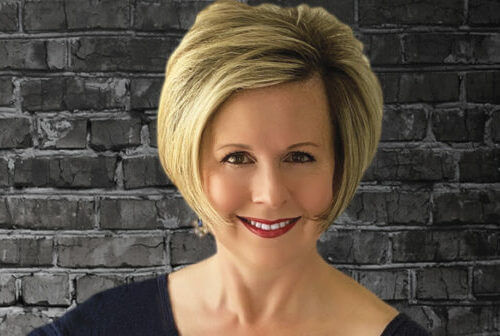The past few weeks have been packed with signature Hotel Business events—two executive roundtables and a Hot Topics panel. The event was a whirlwind but also extremely energizing. It’s always a special moment when we work with industry partners to bring together top minds to discuss current issues. How fortunate we are to be able to host these intimate gatherings, and share their insight with our audience.
On the cover of this issue, you will find a roundtable that was held in person. Page 6 includes highlights of our virtual panel. We will cover the other roundtable in the September edition.
But beyond the talking, what really stands out about these events is listening—truly listening. It is both inspiring and humbling to hear what hospitality professionals who work in the industry every day have to say. And I hope that when you read our coverage—print, digital, social—or watch our videos, you don’t just hear what they say. You listen.
The two are vastly different. Hearing is passive. Listening requires active participation. This requires attention, care and presence. This brings me to an interesting finding of a recent survey by OysterLink. OysterLink is a platform that connects hospitality employers with talent. When asked “What is your opinion of the most underrated hospitality skill?” Active listening was cited by 45% of respondents. It was more popular than empathy (24%), multitasking (13%), and patience (18%). Personal, I would argue that active listening often improves these other skills.
The result is worth a thousand words. The ability to understand someone is a powerful tool in an industry that relies on connections and service. Active listening isn’t just about catching words—it’s about observing body language, responding thoughtfully and creating shared understanding. It enhances interactions, builds trust and prevents miscommunication.
Milos Eric, OysterLink’s general manager, said: “It can be easy to assume that hospitality is only about efficiency. However, what keeps customers coming back is their feelings.” When team members actively LISTEN, they build relationships, prevent issues, and create memorable moments. Listening well can lead to better communication and stronger relationships, whether the listening is between team members, guests, or managers.
Technical skills are important. Clean rooms, smooth check-ins, flawless operations—they all matter. These things are important, but they’re not enough. A guest that feels ignored will not likely return. A guest who feels ignored is unlikely to return. This is the type of experience that makes someone a loyal client, even if things weren’t perfect.
What can hospitality professionals do to improve their ability? Start with consistency and intention:
Be Present Give your full attention, make eye contact and put away the phone.
Repeat the process and confirm. Repeat the key details: “So, would you like a noon checkout?” It shows that you are paying attention to the details and will avoid making mistakes.
Ask clarification questions Seek clarification if something is unclear. “Let me make sure I understand…”
Look out for non-verbal clues. The tone, the body language and the facial expressions can all provide valuable information.
Practice daily. It is important to develop the habit of listening well. Consider your response, pause and reflect before you reply, and be engaged.
At every roundtable, in every discussion—whether it’s about finance, labor or innovation—conversations always circle back to the human side of hospitality. Although technology and automation are reshaping parts of the hospitality industry, emotional intelligence remains at its core.
Let’s elevate listening. Listening is not just “soft” skills. It’s a The foundations of a good business one. Because in the end, hospitality is about more than what you provide—it’s about how you make people feel.
The Post Be an active listener First on hotelbusiness.com.


